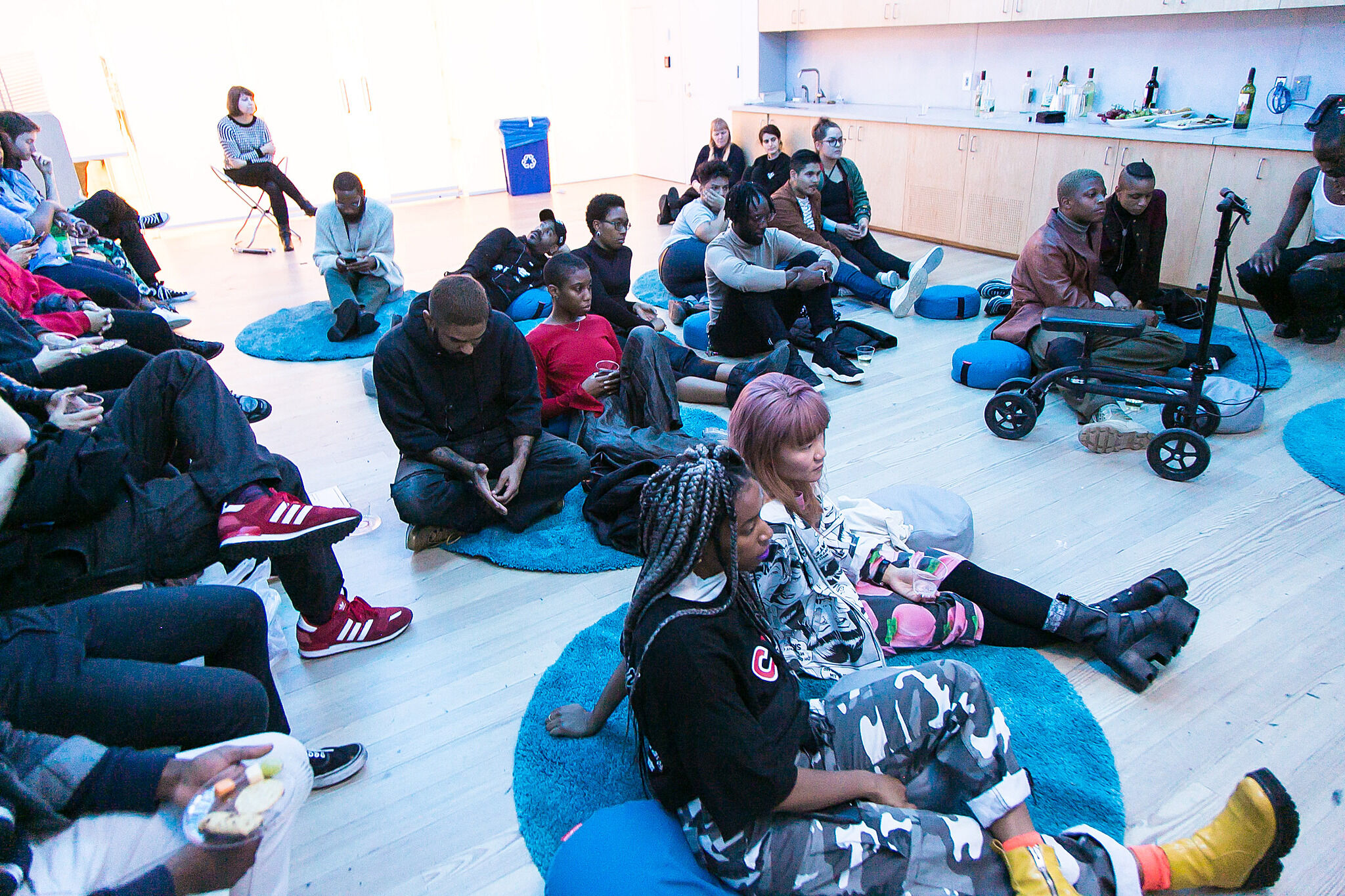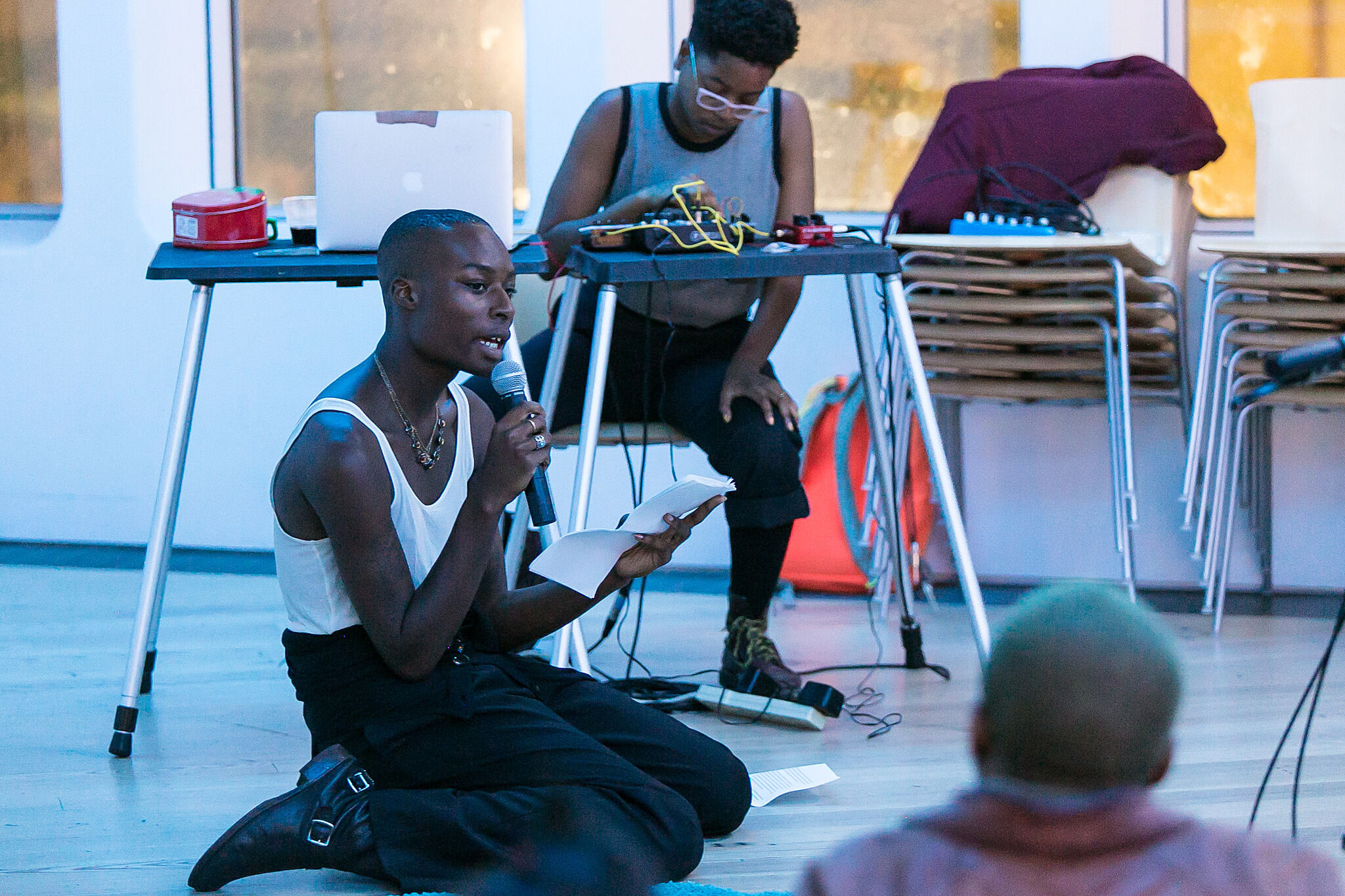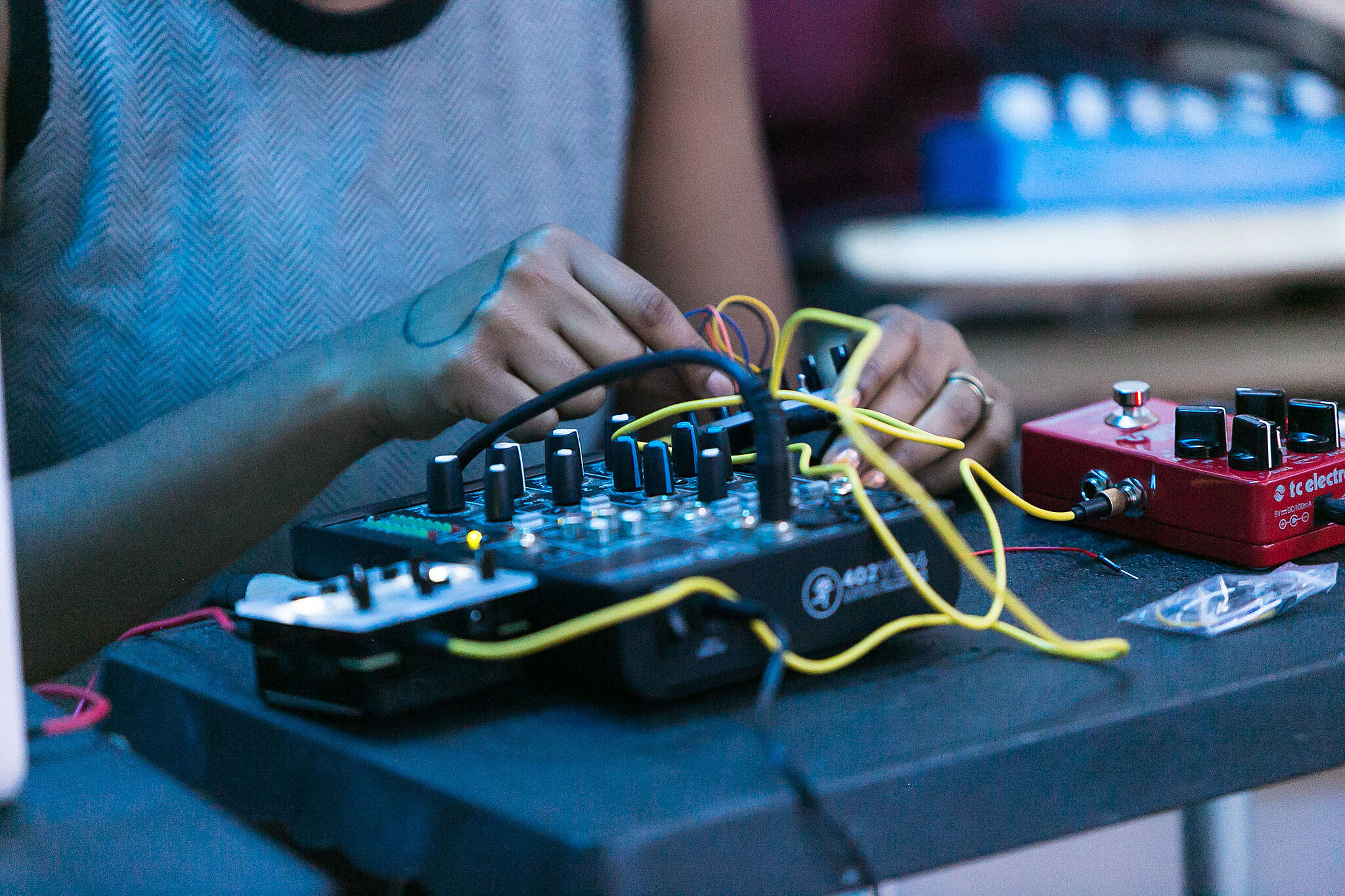Study Sessions: Yulan Grant
Dec 18, 2017
On October 13, multidisciplinary artist Yulan Grant covered the lights in the Whitney’s third floor Artspace with blue gels, removed the seating, and invited attendees to recline on rugs and pillows dispersed across the floor. Audio of Howardena Pindell’s 1980 film, Free, White, and 21 filled the room as Grant, seated at a mixer, disrupted and distorted the sound. Grant emphasized some sonic moments with less manipulation, and obscured others with electronic grumbling, scratching, and static. Later in the performance, artist Jahmal B Golden recited poetry, turning the most cacophonous moments into a type of craggy accompaniment.
Howardena Pindell’s film alternates between shots of the artist recounting personal experiences of racism, and shots of the artist in whiteface, performing as the titular character that dismisses and scoffs at these accounts. She recalls an interaction with a high school teacher: “She told me she would be happy, with my grades, to put me in the accelerated level. However, she felt that a white student with lower grades would go further.” The whiteface counterpart responds: “You know you really must be paranoid. . .I don’t know anyone who’s had those things happen to them. But then of course, they’re free, white, and twenty-one.”
Pindell’s reflections carry both personal weight and point to systemic structures of power that profoundly affect many of us. Despite being made over 35 years ago, the work fits our current moment in which online platforms provide tools for social media users to self-author their own experiences by speaking directly into a camera. Pindell’s work highlights video’s ability to simultaneously amplify one’s voice and assert one’s image, and demonstrates how to do so when engaging the medium in a minimal, DIY fashion. For her sound work, Grant isolates Pindell’s voice and creates space for both reflection and meditation as the audience’s focus wavers between moments of disorientation and clarity. Pindell’s voice, like the experiences she shares, becomes ubiquitous and undeniably present, even when it’s difficult to hear or understand.
Justin Allen, Assistant to Access and Community Programs



